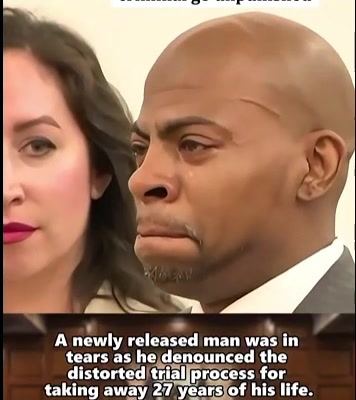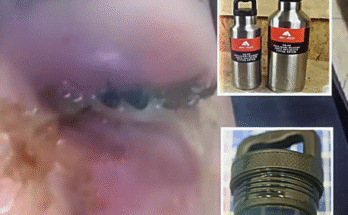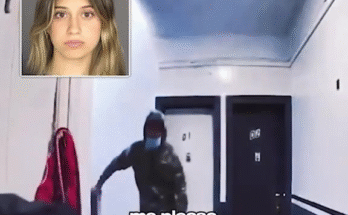Justice systems around the world are built on the principle of fairness, accuracy, and accountability. Citizens expect that when a crime occurs, investigators, lawyers, and judges will work together to uncover the truth, ensuring that the guilty are held responsible while the innocent are protected. However, when errors occur, the consequences can be life-changing—not only for the person wrongfully convicted but also for their family, community, and society at large.
One recent case has brought this reality into sharp focus. What was initially seen as the resolution of a crime later unraveled into controversy after new information suggested that the wrong person had been convicted. The discovery did not just impact those directly involved—it ignited a broader public debate about trust in the justice system, how errors happen, and what reforms may be necessary to prevent them.
The Conviction That Sparked Doubt
The original trial concluded with a guilty verdict, seemingly bringing closure to a complex investigation. Yet, not long afterward, questions began to surface. New evidence emerged suggesting that the foundation of the case was not as solid as initially believed.
Reports revealed several areas of concern:
- Unreliable witness testimony – Eyewitness accounts, while powerful in court, can sometimes be inconsistent or influenced by external factors.
- Overlooked details – Critical elements in the timeline and supporting evidence reportedly did not align, raising doubts about the sequence of events presented during trial.
- Procedural gaps – Some aspects of how evidence was handled appeared insufficiently thorough, leaving space for error.
Despite the convicted individual’s repeated claims of innocence, these issues were only recognized later, once the trial had already concluded.
The Emotional Toll on Families
While legal processes often focus on facts, timelines, and evidence, the human cost of judicial mistakes can be devastating. For the families of those wrongfully convicted, the emotional burden can be overwhelming.
In this case, relatives expressed their despair in court, describing feelings of helplessness and disbelief. To them, it was not only about a lost trial—it was about years of a loved one’s life potentially being taken away unfairly. Beyond the immediate family, wrongful convictions ripple outward, affecting friendships, employment, and community trust.

Psychologists often note that the families of wrongfully accused individuals experience a form of “secondary trauma.” They endure not only the stress of legal proceedings but also the stigma and social judgment that comes with a conviction, even when evidence later points to innocence.
Public Reaction and Online Discussions
Once news of the possible wrongful conviction became public, online platforms were flooded with reactions. Social media users debated the broader implications:
- Some expressed frustration, arguing that the case showed why trust in institutions is sometimes fragile.
- Others emphasized empathy for the accused, imagining the loss of time, opportunities, and dignity when someone is punished for something they did not do.
- Many pointed out that while such cases may be relatively rare, each one highlights the need for ongoing reform to minimize errors.
These online discussions reflect a growing public awareness of wrongful convictions. They also demonstrate how digital platforms amplify public opinion, ensuring that individual cases can influence broader conversations about justice.
The Hidden Cost of Wrongful Convictions
Beyond the immediate emotional and legal consequences, wrongful convictions carry a wider societal cost. Legal experts often highlight several key issues:
- Loss of Freedom for the Innocent
An innocent person serving time loses years of their life, educational and career opportunities, and often faces lasting stigma even if exonerated later. - Safety Concerns for Society
When the wrong person is convicted, the true offender may remain free. This not only denies closure to victims but also raises public safety concerns. - Financial and Resource Strain
Wrongful convictions cost the justice system time and money. Retrials, appeals, and compensation claims place additional burdens on already stretched resources. - Erosion of Public Trust
Every error undermines confidence in legal institutions. For justice systems to work, public trust is essential, and wrongful convictions put that at risk.
Voices of Legal Experts
In light of this case, several legal professionals have emphasized the importance of reform. Many point to the following areas for improvement:
- Better handling of evidence – Ensuring forensic materials, digital records, and testimonies are carefully preserved and examined.
- Stricter evaluation of eyewitness accounts – Since human memory is fallible, experts suggest reducing reliance on single eyewitness testimonies.
- Accessible appeals processes – Allowing convicted individuals the ability to challenge outcomes efficiently, without excessive financial or procedural barriers.
- Transparency and accountability – Encouraging independent reviews of questionable cases to avoid institutional bias.
One legal analyst noted that wrongful convictions are not just about individual mistakes—they often reflect systemic issues that require long-term solutions.
The Human Side of Legal Errors
While statistics and reforms are important, it is equally vital to acknowledge the personal stories behind these cases. For the person wrongfully convicted, the impact can last far beyond their release. Reintegration into society may be difficult, as stigma and mistrust linger. Families may struggle to rebuild relationships, careers may be permanently affected, and psychological scars may remain.
Support networks and community programs can play a role in helping individuals recover from such experiences, but the damage cannot always be fully undone. This reality highlights why prevention is critical: it is far better to avoid wrongful convictions altogether than to attempt to repair the consequences afterward.
Calls for Change
This case, though painful for those involved, has already served an important purpose: it has drawn attention to weaknesses within the justice system and sparked conversations about solutions. Legal professionals, activists, and ordinary citizens alike are calling for changes that will reduce the likelihood of similar mistakes.
Some suggestions include:
- Expanding training for investigators and prosecutors.
- Increasing the use of technology in verifying timelines and evidence.
- Establishing independent review boards to assess questionable convictions.
- Offering better legal representation to those who cannot afford it.
Reforms like these aim to strike a balance between ensuring justice for victims of crime and protecting the rights of those accused.
A Lesson for the Future
No justice system is perfect, but cases like this remind us why vigilance, transparency, and reform matter. Mistakes can happen in any complex system, but when the stakes involve people’s freedom and trust in society’s institutions, the margin for error must be as small as possible.
For the individual wrongfully convicted, the journey may be filled with loss and hardship. For their family, it may mean years of emotional struggle. For society, it is a sobering reminder that justice is not automatic—it must be continually safeguarded through diligence, fairness, and accountability.
Ultimately, this case is more than just a story about one trial gone wrong. It is a reflection of how deeply justice affects us all, and why efforts to strengthen it remain vital for the future.



